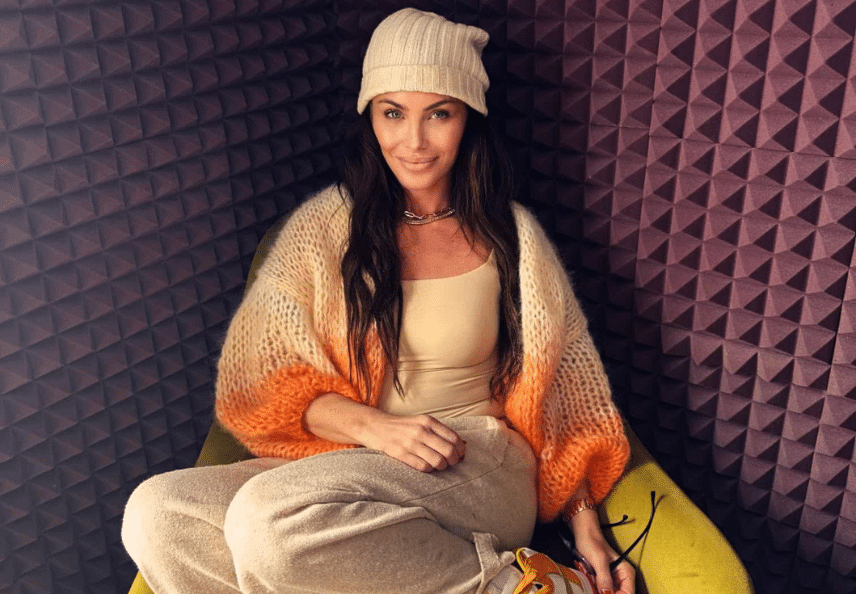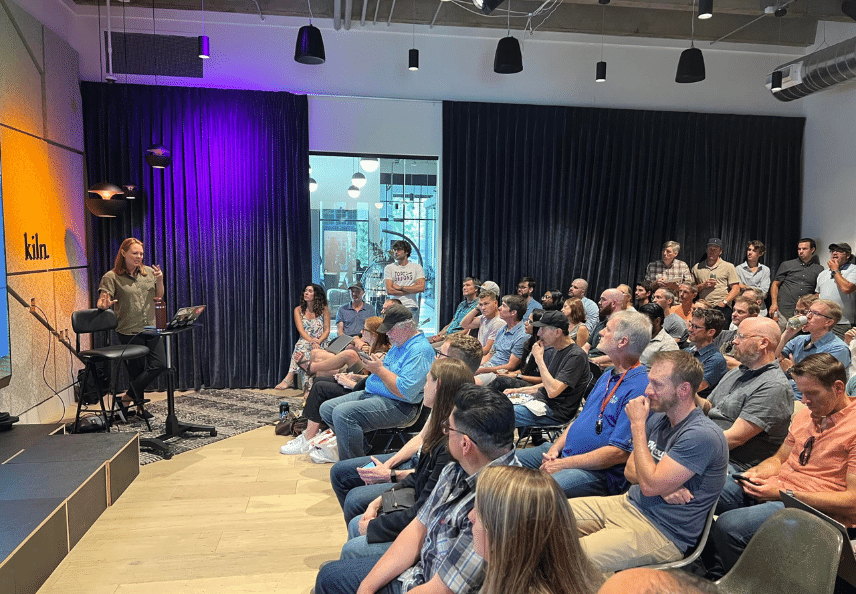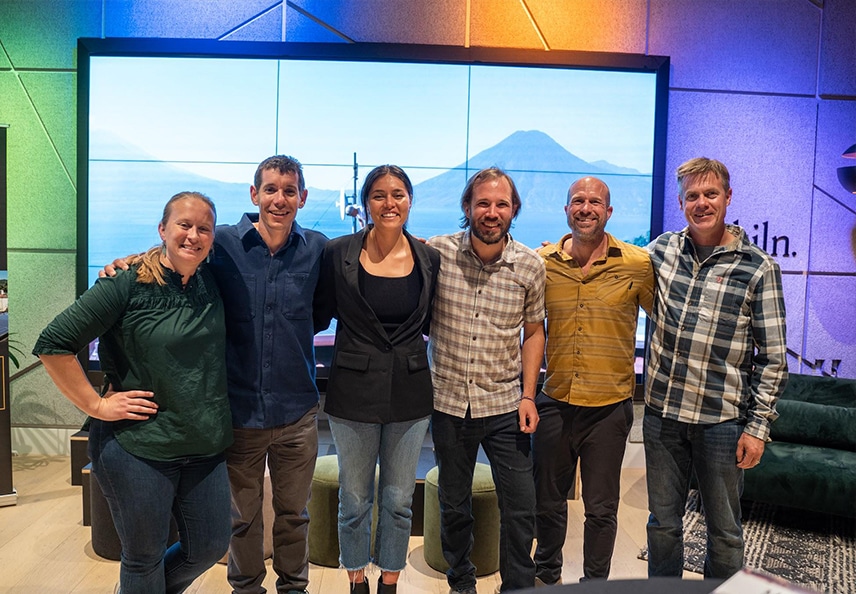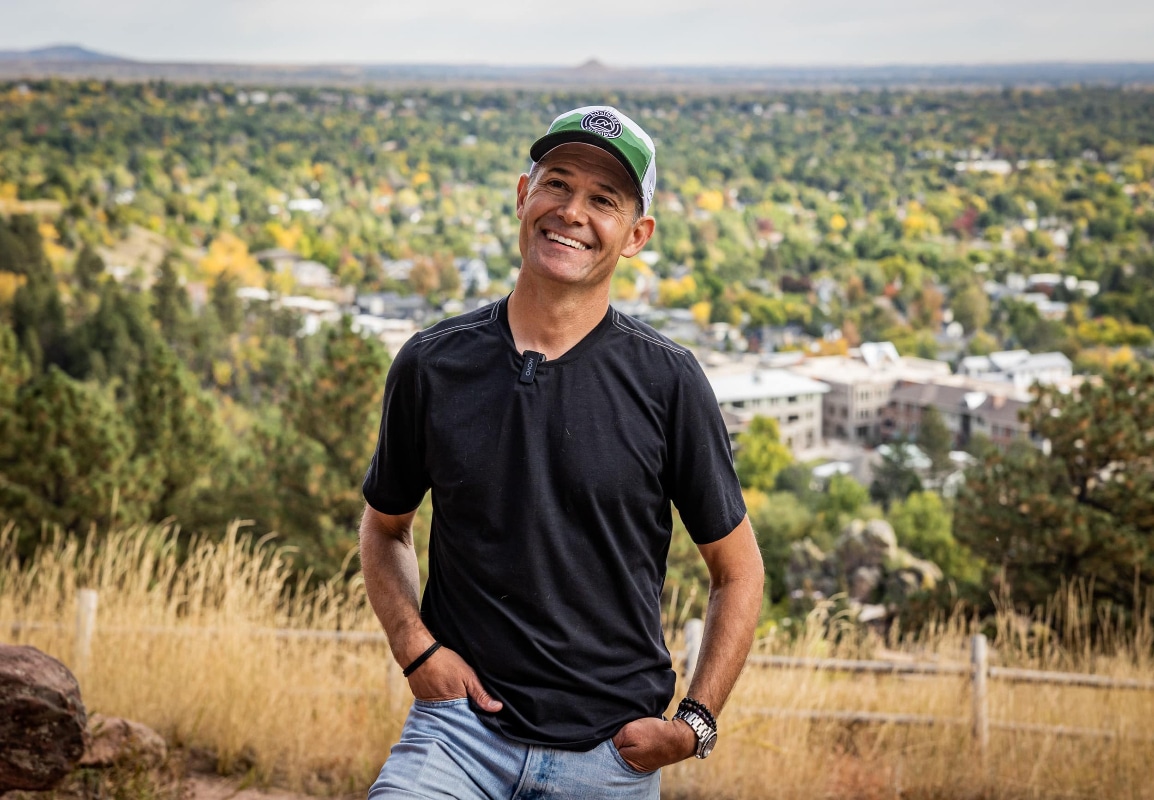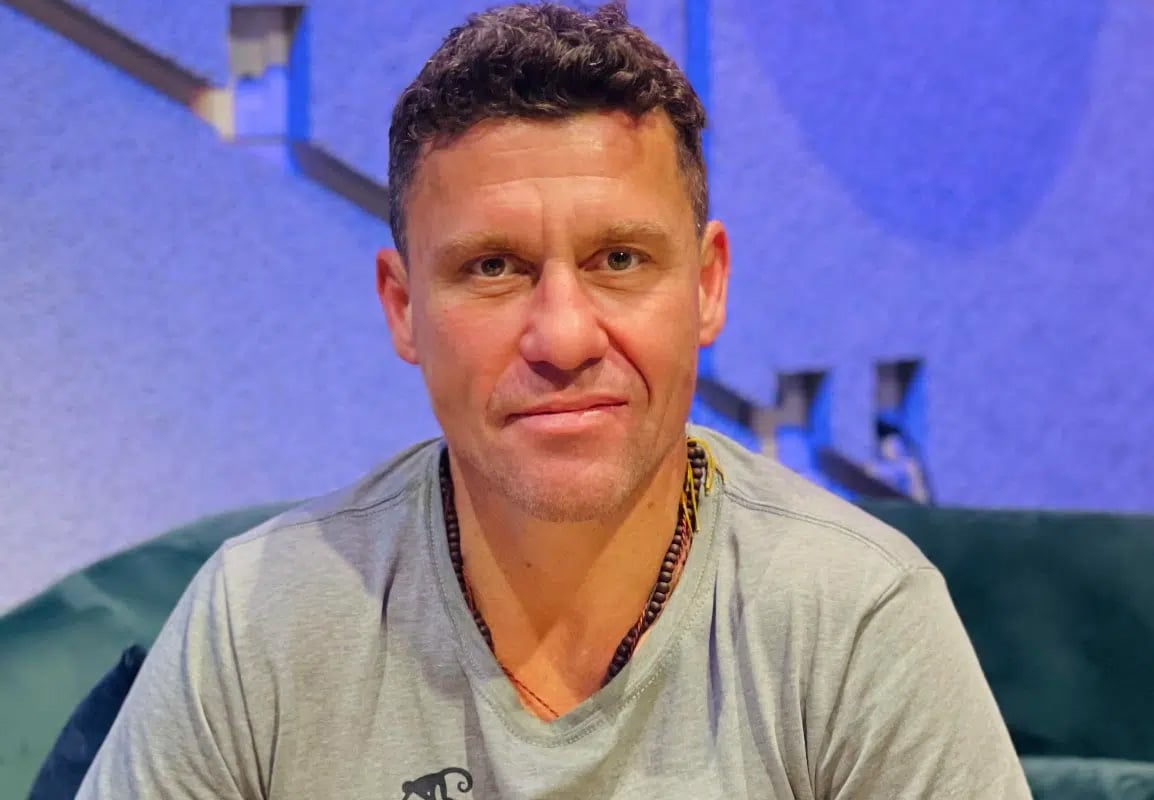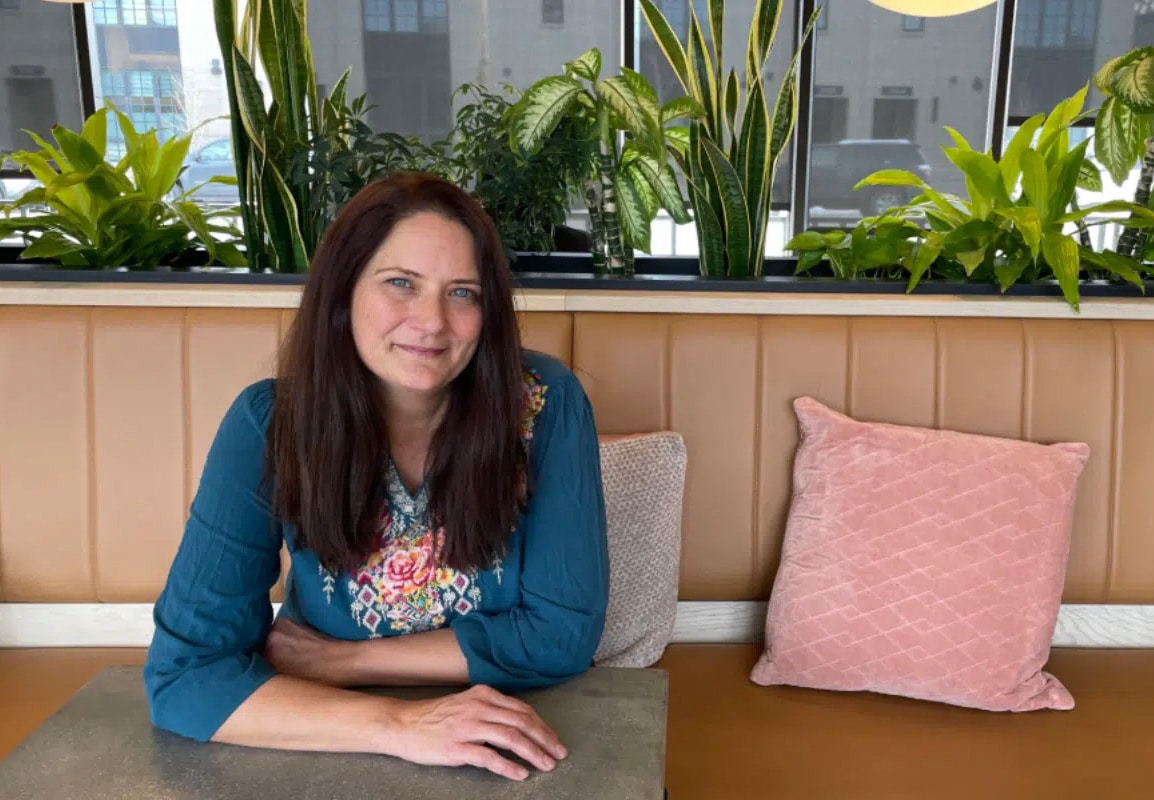When you continuously challenge your thinking patterns, like imposter syndrome, doubt, or fear, then you’re teaching your brain a new way to operate.We use our emotions to make most decisions, even in business, certainly in relationships.
Molly Bloom has fought for her story her entire life. Through sports, business, high-stakes poker, or Hollywood’s elite, she has navigated and overcome countless challenges to be the her(oine) of her own story.
As a young girl she would undergo an intense spinal surgery before being told her athletic career was over. Her response? “Well, I guess they don’t know me.”
In her twenties, she constructed one of the most extensive underground poker networks only to see it all seized by the FBI. Battling for her freedom, she leaned on integrity and ownership to create a fresh slate for herself. When she had the opportunity to work with a major Hollywood producer, she fought to be portrayed as more than just another female archetype getting swept off her feet.
Now, as someone who deeply embraces meditation, she uses self-awareness to teach other women about their (and she emphasizes), own power.
1. Forget About the Naysers
Nearly every business owner has experienced the sting of rejection from investors; sometimes, even those closest to us doubt our path. Staying true to your own inner voice—even when we’re given a blatant no or told we have a 0% chance—is paramount.
MB: When I was younger, I was a competitive skier. I got severe scoliosis and had to have reconstructive surgery that was very intense. The doctors had told me that mogul skiing was off the table and my parents also were on board with the advice of the medical community. Even my coaches said it’s time to move on. But there was just something in me that couldn’t walk away.
And so that required me to go deep inside and block out the noise externally (and ultimately internally, too) to find the answer. Ceasing to outsource your permission and analyzing the odds, going inside and asking yourself; what is it that I’m called to do? The way that I had to do that was in a relentless way, I had to challenge my thoughts. So when a thought would come into my head, “Well, that back surgeon said that I couldn’t do this.. the challenge is he doesn’t know me. He doesn’t know what I’m capable of. And I highly doubt he’s ever had anybody on his table who’s a competitive mogul skier.”
He’s going to give me the safest, and least negligent route, to put himself in a safe position. It’s this practice of starting to become aware of the thoughts and of what the stories that you’re listening to are and to think critically about it from a rational point of view. Then challenge those thoughts. When you continuously challenge your thinking patterns, like imposter syndrome or doubt or fear, then you’re teaching your brain a new way to operate. And so, you know, when you’re doing it in a relentless fashion, the default mode can become, “No, I believe in myself and I don’t need anybody else to.”
2. Learn the Art of Affective Presence
Understanding how your leadership-style impacts the broader organization is essential in helping your team succeed. Relationships within the organization, trust, and the confidence you instill in others profoundly influences every outcome.
MB: Understanding how people feel in your presence is called Affective Presence and it’s what I’m writing my book about. It’s looking at the science of how you make people feel, what kind of emotions you’re eliciting. I always think about the quote, Maya Angelou said, ‘People are going to forget what you said and what you did. They’re never going to forget the way you made them feel.’ It turns out that is scientifically accurate as well, because we use our emotions to make most decisions, even in business, certainly in relationships. We store these subconscious memories based on the emotions someone’s eliciting from you at the time. There’s all this unconscious and conscious bias towards people that make us feel emotionally good.
Starting to understand what that looks like; what are the things that I’m doing that don’t create positive emotional experiences and what are the things that I can do to create those positive emotional experiences? It’s everything from deep listening to authenticity to trust, but also things like feeding people. Remembering what their story is, remembering what their favorite drink is, the lighting in the room, the temperature in the room, the music, the scent of a candle.
There’s this fascinating study into how human beings operate and they mostly are in response to what kind of neurotransmitters are being emitted in the brain. If it’s cortisol, the stress chemical, they may not know why but in a month or two, they don’t want to be around you. If it’s oxytocin or dopamine or serotonin, they opposite will take effect. In the Guinness Book of World Records there’s a guy who’s known as the best salesman in the world and this was his strategy. He would tell people he liked them, and then he would follow up and send cards every year, reiterating how much he liked them.
3. Take Calculated Risks
By meticulously assessing variables and potential outcomes, you can navigate uncertainty with clarity. This deliberate approach not only minimizes impulsivity but also fosters an environment where calculated risks create innovation and progress.
MB: If you’re in one of these chapters of life where it could bring you to your knees —it really is training the mind to focus on where you want it to go and not on this inner chatty default mode that’s not necessarily telling you the truth. Most of the time, it’s not going to support your dreams, allow you to take risks, or defy odds.
There’s this great quote in the Untethered Soul, “You’re not the voice in your head. You’re the one that hears it.” And this understanding, that you can hear this chatter, means that you have the ability to sit and observe it and then make a choice if you’re going to get involved.
It’s a gigantic edge. If you can develop a process where you can feel incredibly angry, incredibly scared inside, incredibly sad, and you can do the thing anyway. I feel this emotion inside. I have a choice. Am I gonna rain hellfire on their ass and regret it later? Or am I going to breathe my way through to peace and walk away. All these things that enable you to start to have control over the outcome of your life. I think that is the biggest secret I have.
4. Lean on Systems, Processes, and Vetting
Building robust systems provides structure and support for growth–just as important is handpicking the right people to join your team. Moreover, choosing the tools or software to integrate into your organization will significantly influence its efficiency and adaptability.
MB: I had to come up with a process to vet people because no one’s bringing $500k in cash to a game. This was mostly based on credit. The numbers were so big and you can think you’re really good at reading people—but again—the gut is off so often. When a million dollars is on the line, the gut is not the place to go. So I developed a process for vetting, because if people didn’t pay, well, I was the bank. And then developing a process for managing people when they lost gigantic sums of money became a key part of my process and success.
5. Never Underestimate the Power of a Great Your Story
It’s our personal stories that allow us to share lessons from setbacks and our journey in an authentic way. Through unwavering dedication and a relentless belief in a vision, you can inspire others and find the courage to persevere.
MB: Initially, I got a small book deal and they didn’t put a lot of marketing dollars behind it–I got rejected a million times. But I still believed that my gut feeling was correct. So I made this short list of filmmakers in Hollywood, including Aaron Sorkin. Aaron, because of the way he wrote, seemed like he cared a lot. He was also the highest paid screenwriter in Hollywood, had just won an Oscar for the Social Network, and was next to impossible to get to. So even to get a meeting with him, I had to be persistent and strategic.
Finally, a friend of mine asked ‘will you just read this book for this girl?’ He had no interest but came to the meeting anyway. I had this moment: I live with my mom. I’m broke. My book didn’t sell. What am I? Then I thought, your value is not necessarily wrapped up in where you are—it’s in your potential. So I walked into the meeting and I totally faked that I was confident and was able to behave far differently than the way I felt inside.
When I was done, he said the funniest thing; “I gotta tell you, I’ve never met someone so down on their luck and so full of themselves.” I presented it to him as though this was the best story in the world. And I just laughed inside because if he could only see my feet and legs shaking.
Transforming Lives Through Shared Wisdom
Everything I’m doing now stems from the lessons, the experiences, and what my intention is in the world; which is truly to teach women about power—their own power.
What I mean by power is this internal strength where life can serve you whatever it serves you. And you not only know you’re going to be okay, you know you’re going to turn it into something that’s purposeful and useful. That can be as specific and small as learning how to overcome procrastination or it can be as large and profound as getting out of a toxic relationship.
I’m launching a podcast that is very highly vetted, scientifically-backed solutions to the dilemmas we have as human beings and specifically, we have as women. There is a community-building piece in which action items will be a conduit to making things happen as well as a mentor-mentee feature to help support some of the obstacles and barriers we face as women.




